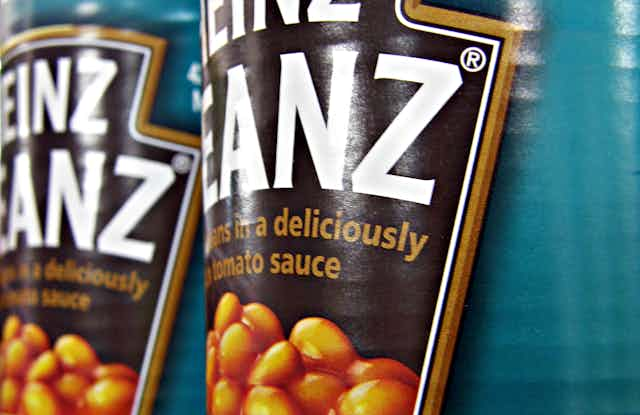Anglo-Dutch giant Unilever may have (for now) seen off a clumsy takeover bid by Kraft Heinz, but that doesn’t mean questions over corporate takeover policy in Britain have gone away. In fact, it was odd that such a discussion was absent from the UK government’s recent industrial strategy proposals.
It was a glaring omission that Greg Clark, the business secretary, appeared to acknowledge in a recent commitment to look at how ministers should handle controversial bids.
Kraft Heinz’s £115 billion bid was swiftly rejected by Unilever. A joint statement on Feb 17 announced the US food group had “amicably agreed to withdraw its proposal”. Clearly, Kraft Heinz had misjudged the hostility from Unilever, the media and from politicians. The firm is owned by US investor Warren Buffett and a Mexican private equity firm run by Jorge Lemann. Neither had picked up on the intense debate that followed the Kraft takeover of Cadbury back in 2009-2010, or deep concerns over Pfizer’s failed 2014 bid for Astra Zeneca.

Bidding down
Unilever’s management was bound to reject the initial offer, which represented a rather meagre takeover premium of 18%, which Unilever felt undervalued the firm. Some £70 billion of the bid would have been in cash, funded by debt. Kraft Heinz already has almost $30 billion in long-term debt on its books. An even bigger debt pile could have been a drag on Unilever’s credit rating and might mean higher debt servicing costs.
Unilever shareholders are also overwhelmingly long-term investors who have held their shares for more than five years. They value the long-term trajectory of the firm and were always likely to be sceptical of a deal which could jeopardise that. No wonder Unilever is now looking at ways to reward tbeir loyalty.
Kraft of course is remembered for making jobs promises during the Cadbury deal before swiftly reneging on them, with job cuts and an end to paying tax in the UK. A slap on the wrist ensued from the Takeover Panel.

State defences
Last year, in a speech which launched her bid to secure the Tory leadership, Theresa May referenced the Astra Zeneca and Cadbury cases:
A proper industrial strategy wouldn’t automatically stop the sale of British firms to foreign ones, but it should be capable of stepping in to defend a sector that is as important as pharmaceuticals is to Britain.
May was right. There shouldn’t be an automatic barrier to takeovers as some bring benefits – think of Tata’s careful stewardship of Jaguar Land Rover. However, at the moment there is very limited scope for the UK government to intervene.

This, and post Brexit currency moves, leaves UK firms vulnerable to takeovers, and this can force them to focus on short-term profitability. As a Policy Network report has highlighted, takeovers in the UK are more common, more likely to be hostile and more likely to go ahead than in any other major economy. It suggests that a significant proportion of takeover activity is not beneficial to the creation of long-term shareholder value, the industrial base, the national economy or to society as a whole.
Indeed, most big takeovers fail, as many academic studies show. So some sort of balance is needed when it comes to takeover policy.
And that’s why it was such a curious decision to leave takeovers out of the industrial strategy green paper. Maybe the UK’s financial sector earns too much from mergers and acquisition fees for the government to try to make takeovers harder – in the Kraft–Cadbury case those fees were thought to have run into several hundred million pounds.
Going cheap?
To be fair, Unilever’s ice creams, spreads and soaps may not be seen as strategic technological assets that must be protected, like the pharmaceutical science base. But this is nevertheless a big firm, which employs lots of workers and takes corporate social responsibility seriously.
And, like Cadbury before its takeover, Unilever is a successful firm that has performed well and paid decent dividends. Its share price has risen by 70% since 2010, even before the bid. This is hardly a poorly performing company in need of takeover to insert a new management team to turn things around. Rather, Kraft Heinz probably thought they could get it on the cheap – that post-Brexit-vote depreciation of sterling makes UK assets appealing to foreign buyers. They could then pile their new acquisition with debt and cut costs.

To prevent this kind of poaching, particularly in the white heat of Brexit uncertainty and a weak pound, the government could usefully look at four broad areas when re-examining takeover policy.
First, there should be reforms to the tax system and financial system to encourage longer-term commitment by shareholders. A tapered capital gains tax would act to reward long-term investors while discouraging hedge funds and other speculators trying to make a quick profit from a takeover.
Broader corporate governance changes could also be brought in, such as limiting voting rights in takeover situations until a shareholder had held shares for a year or more. And amendments to the Takeover Code could be used to give greater protection to defending firms. That might include “raising the bar” on obtaining control in takeover situations (to 60% rather than the current 50.1% perhaps).
Perhaps most fundamentally, the government could reintroduce a Public Interest Test which was largely scrapped in the 2002 Enterprise Act. That could enable an independent body to examine the public interest impact of takeovers above certain thresholds. Effectively, this would at least enable a block to be made in large takeover cases which are not deemed in the public interest.
Together, these measures could have been enough to help Cadbury see off Kraft back in 2010. More broadly, they would throw some sand in the wheels of an inefficient and costly takeover machine just as currency fluctuations make British firms look attractive to acquisitive eyes.

